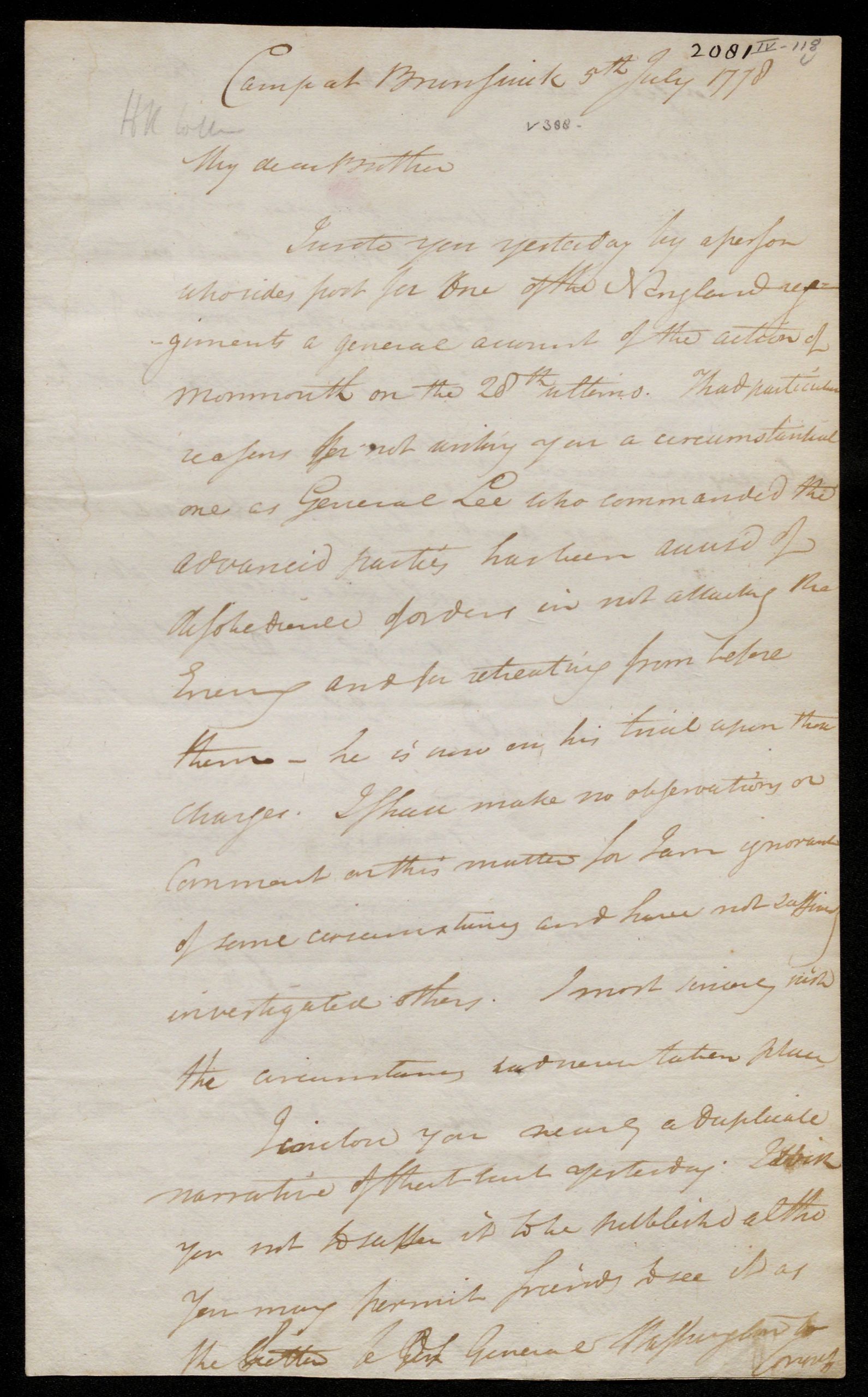
A larger version of this object is available to teachers and students for free. Others can subscribe for $25/year.
Larger images are also available to schools and libraries via subscription to American History, 1493-1943. Check to see if your school or library already has a subscription or click here for more information.
- GLC#
- GLC02437.00715-View header record
- Type
- Letters
- Date
- 5 July 1778
- Author/Creator
- Knox, Henry, 1750-1806
- Title
- to William Knox
- Place Written
- New Brunswick, New Jersey
- Pagination
- 3 p. : address : docket ; Height: 32.2 cm, Width: 19.3 cm
- Primary time period
- American Revolution, 1763-1783
- Sub-Era
- The War for Independence
Informs his brother that he wrote a previous letter discussing the Battle of Monmouth (refer to GLC02437.00714). Writes, "I had particular reasons for not writing you a circumstantial [account] as General Lee who commanded the advanced parties has been accus'd of disobedience of orders in not attacking the Enemy and for retreating from before them- he is now on his trial upon the charges." Encloses a duplicate account of what he previously wrote on the battle and asks William not to publish it, noting that George Washington's letter to Congress will carry the "most true and just account." Asks William to procure two Newfoundland dogs for another person whose name is illegible. Reports that on the previous day, George Washington gathered the army in two lines (that were two miles long) to celebrate Independence Day. Writes, "The reputation and the Credit acquired [text loss] Artillery in the battle of Monmouth will do them & me lasting honor." Plans to see Lucy and their daughter, also named Lucy, the following day. Comments that when he and his wife went to Philadelphia after the British evacuation, the stench of the city prevented them from staying longer.
Citation Guidelines for Online Resources
- Copyright Notice
- The copyright law of the United States (title 17, United States Code) governs the making of photocopies or other reproductions of copyrighted material. Under certain conditions specified in the law, libraries and archives are authorized to furnish a photocopy or other reproduction. One of these specific conditions is that the photocopy or reproduction is not to be “used for any purpose other than private study, scholarship, or research.” If a user makes a request for, or later uses, a photocopy or reproduction for purposes in excess of “fair use,” that user may be liable for copyright infringement. This institution reserves the right to refuse to accept a copying order if, in its judgment, fulfillment of the order would involve violation of copyright law.